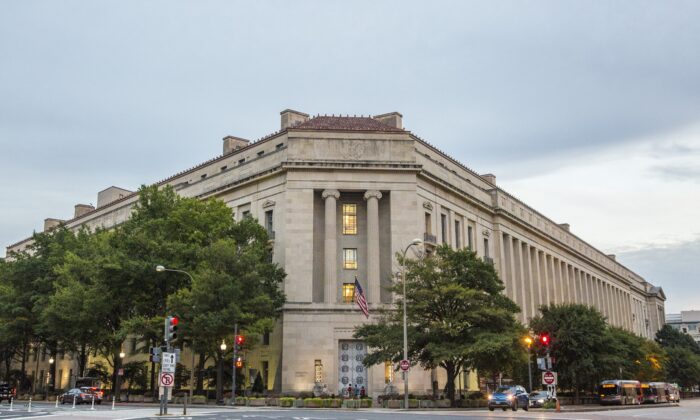A union that represents hundreds of immigration judges has filed a lawsuit against the Justice Department’s Executive Office for Immigration Review (EOIR) to challenge its policy restricting judges from speaking or writing in their personal capacity about immigration or their agency.
The suit was filed on Wednesday by the Knight First Amendment Institute on behalf of the National Association of Immigration Judges (NAIJ). It seeks to block a January 2020 policy that prohibits judges from speaking or writing publicly in their personal capacity on issues related to immigration law or policy or EOIR’s policies and programs, and on other topics, judges need to seek the agency’s prior approval.
“There is an ongoing national debate about the wisdom and fairness of recent changes to immigration laws and policies and about the effect of those changes on the immigration court system. Immigration judges have unique insights to contribute to this discussion,” the labor group says in their complaint (pdf). “While EOIR has a legitimate interest in promoting the efficiency of the services it performs through its employees, the 2020 Policy is not appropriately tailored to that interest.”
The judges allege that EOIR’s restrictions amount to a violation of their First Amendment speech rights under the U.S. Constitution, which they said government employees do not surrender when they enter the public service.
“They retain their rights, as citizens, to speak on matters of public importance, and the government can silence them only if it can show that its interest in doing so outweighs the employees’ interests in speaking and the public’s interest in hearing what they have to say,” the group argues.
They added that the policy also violates the Fifth Amendment because it “invites arbitrary and discriminatory enforcement, and because it fails to give immigration judges fair notice of what standards will be applied in reviewing their requests for preapproval.”
Immigration judges were generally allowed to speak in their personal capacities about immigration law in public speeches or to news media for years as long as they made clear that they were not speaking on behalf of the agency. But in 2017, the EOIR changed its policy (pdf) putting limitations on judges who wished to speak in their personal capacities. The agency revised the policy (pdf) again at the beginning of this year, making it more restrictive, the group said.
“Part of the job of an immigration judge is to educate the public about the immigration courts and the role they play in society,” Judge A. Ashley Tabaddor, president of the NAIJ, said in a statement. “This policy prevents us from doing this critical work, undermining public understanding of and trust in the immigration courts in the process.”
The Justice Department told The Epoch Times that they do not comment on pending lawsuits.
The changes to the agency’s speaking engagement policy came around the same time the immigration under the Trump administration was heavily scrutinized in the public and news media.
President Donald Trump, who made immigration a priority in his 2016 presidential campaign, had taken numerous actions in the first few years of his presidency to curb the influx of illegal immigration at the southern border that was overwhelming the nation’s immigration system. The administration also implemented a number of policies to address the backlog of active cases that were being processed in the system.
The number of active backlog cases pending in U.S. immigration courts through to August 2019 exceeded one million, according to the data from the research center Transactional Records Access Clearinghouse. The backlog of pending court cases has surged in 2019 when compared to previous years.
The lawsuit also noted the series of changes made to the immigration court system such as imposing case completion quotas and performance benchmarks on immigration judges, and limiting the judges’ ability to close cases administratively and grant continuances.
The Trump administration and the union have been at loggerheads on a number of issues, which escalated when EOIR attempted to decertify the association before the Federal Labor Relations Authority in January. Meanwhile, NAIJ’s president Tabaddor earlier this year presented her case to Congress that the immigration court system should be independent of the executive branch (pdf). The immigration court system is part of EOIR, which is responsible for interpreting and administering federal immigration laws by conducting immigration court proceedings, appellate reviews, and administrative hearings.
Focus News: Immigration Judges Sue Justice Department Over Policy Restricting Public Speaking
